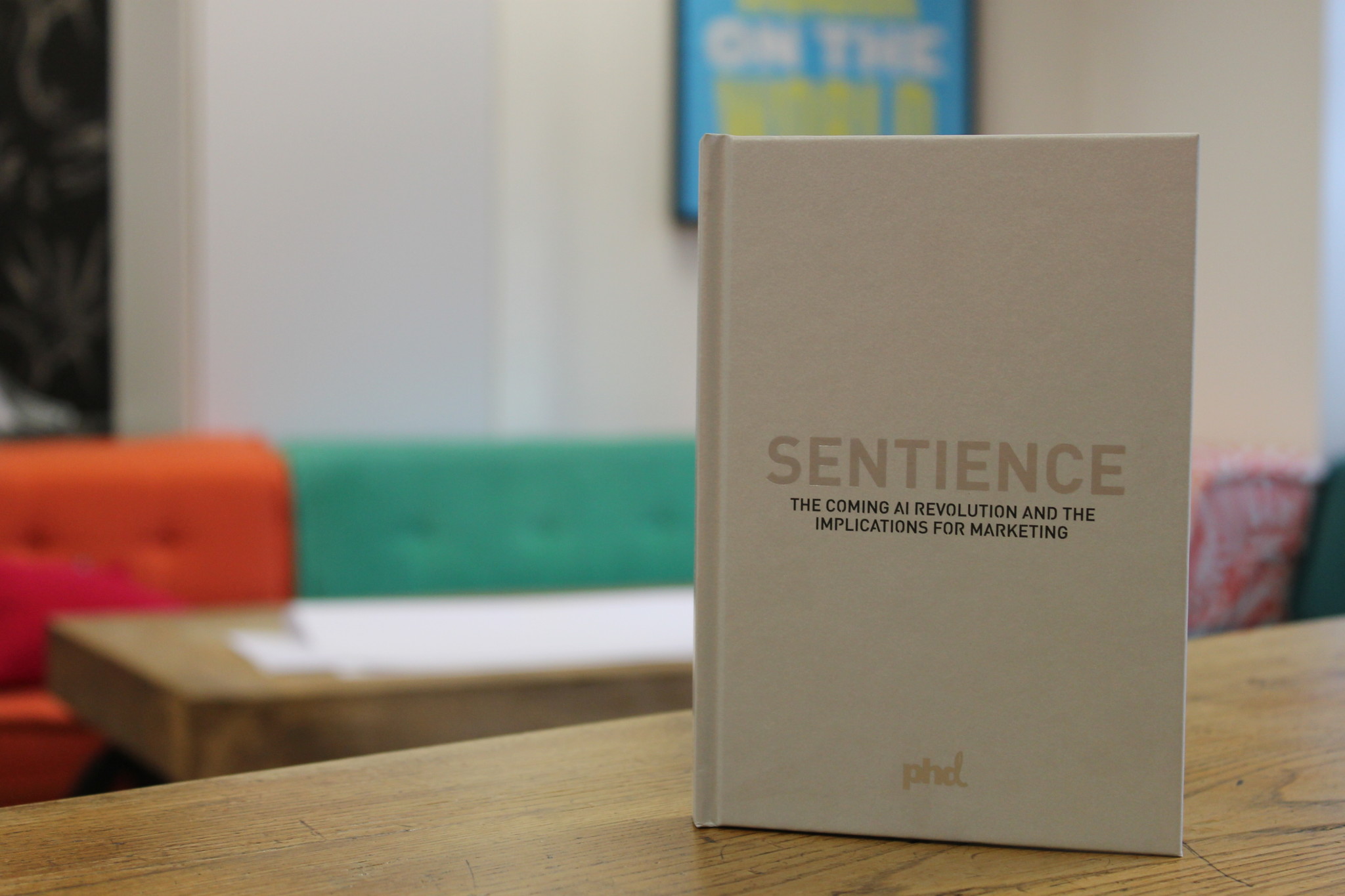
AdNews is offering the first 100 new subscribers to the AdNews email newsletter a free copy of PHD's book Sentience: The Coming AI Revolution and the Implications for Marketing. Read on.
The UK drama Humans, which just finished airing on the ABC, explores a future where humans and machines live side by side. Where the latest gadget for the family is not an HD TV, or a virtual reality headset, it’s a 'synth'. A humanoid robot which lives with the family, learns its likes and dislikes and does all the daily chores like making dinner, driving the car, and cleaning the kitchen. As the series progresses, it explores themes around artificial intelligence like the consciousness and emotions of machines and whether technology can ever be sentient. It might seem like a distant future, but really it’s not.
It’s a theme that PHD is also exploring. Back in June, PHD published Sentience: The Coming AI Revolution and the Implications for Marketing, a book which explores the same theme.
If you’re wondering what AI has to do with media planning and buying, the answer is - everything.

AdNews is offering a free copy of the book to the first 100 new subscribers to the AdNews email newsletter. You can sign up here. You can also subscribe in print by clicking here or emailing our subs team. Please quote Sentience.
Google, Facebook and Apple are already in the midst of it. Siri is a form of AI and Facebook is investing in machine learning. Google’s search results are already based on predictive recommendations, while Google Now will already tell you things like whether you need to allow extra time to catch a flight at the airport based on current traffic.
Mark Coad, CEO of PHD Australia, told AdNews: “Our vision is about being game-changers. Inherent to that is the fact that the world around us is fundamentally changing and it’s incumbent on us not to just play that game, but to play a role in changing the game.”
“There are many areas around the media technology landscape that you could quite rightly say, ‘What’s that got to do with media?’, Coad said. "But it’s got everything to do with media, because if the world we’re operating in fundamentally changes, how are we designing our business and building our skill sets and helping our clients navigate through that?”
Two years ago, PHD’s theme was around game-changing, last year it was gamification. Each time it explores a theme, the agency looks to land it back into what it means for consumers, and therefore what it means for the world of media.
Joel Pearson, head of digital innovation at PHD Sydney, who was a contributor to the book, says: “AI is something that is becoming a lot more mainstream in the sense that people know it’s out there. It’s starting to get interesting; thinking of it not in the sense of Terminator-style science fiction, but thinking about it like a real thing.”
The first area that PHD believes AI will impact marketing is through virtual personal assistants and mobile devices – much like what Spike Jonze explored in the 2013 movie Her, starring Joaquin Phoenix.
The idea is that AI machines will join the dots between data sets to provide people a frictionless experience. For instance, if someone is due to catch a flight, but is running late from a meeting, a mobile device will already know their geo-location and know that in traffic they won't make the flight. So, it will automatically re-book another flight time, and look into rental car options or hotels if necessary, using previous preferences, all without the individual’s input.
Coad added: “One thing from Sentience that really stuck with me is that marketers have to start thinking about marketing to algorithms. We’re already doing it in a way through paid search, but the brand isn’t talking to me, it's talking to the intelligence in my phone."
Sentience also touches on Moore's Law, to picture how soon AI will start to impact advertising, media and marketing.
“The mega trend in technology is that computers will progress twice as fast and cost half as much every 12 to 18 months. It’s turning science fiction into reality. What that brings is only limited by what you can conceive,” Coad said.
Pearson added: “Even through a lot of this stuff isn’t that far off – it’s still a big leap from where we are. It’s just that those leaps are getting bigger and faster.”
 AdNews is offering the first 100 new subscribers to the AdNews email newsletter a free copy of the book. You can sign up here and choose a daily or weekly burst of the latest news and insightful media, marketing, advertising and technology news straight to your inbox. Sign up here and read more. [New subscribers only, open to Australia and NZ residents only.]
AdNews is offering the first 100 new subscribers to the AdNews email newsletter a free copy of the book. You can sign up here and choose a daily or weekly burst of the latest news and insightful media, marketing, advertising and technology news straight to your inbox. Sign up here and read more. [New subscribers only, open to Australia and NZ residents only.]
You can also subscribe in print by clicking here or emailing our subs team please quote Sentience.
Have something to say on this? Share your views in the comments section below. Or if you have a news story or tip-off, drop us a line at adnews@yaffa.com.au
Sign up to the AdNews newsletter, like us on Facebook or follow us on Twitter for breaking stories and campaigns throughout the day.


